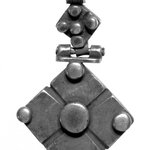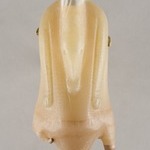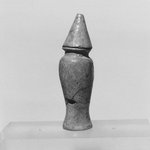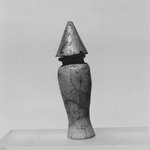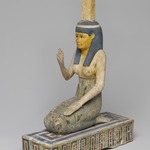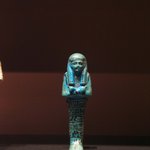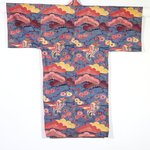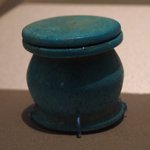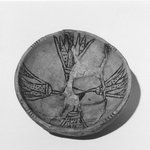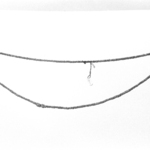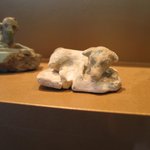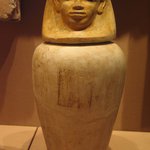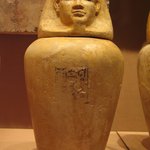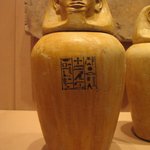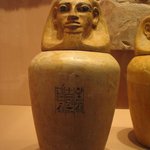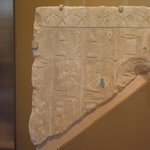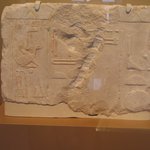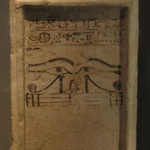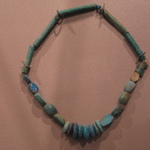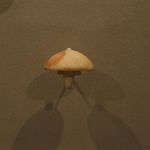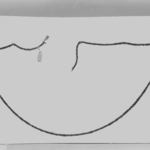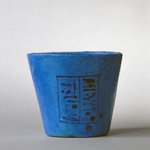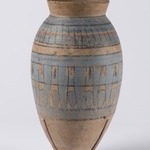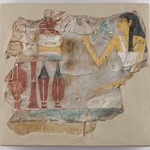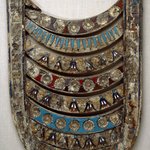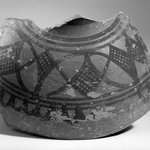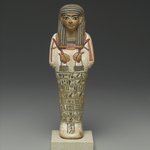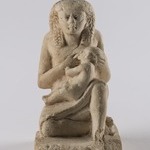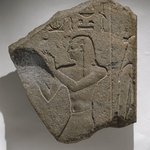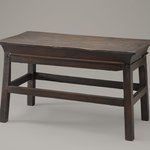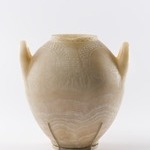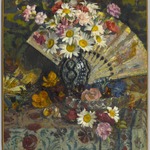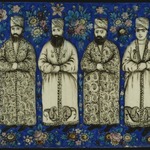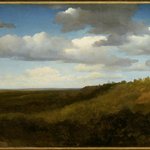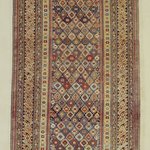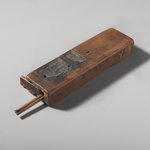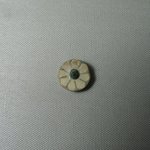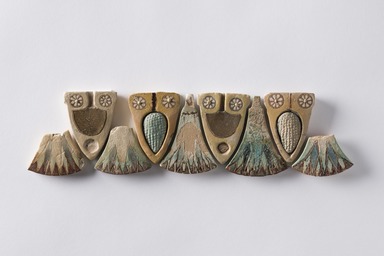
Floral Frieze
Egyptian, Classical, Ancient Near Eastern Art
Although the use of glazed tiles and colored paste inlays is known from as early as the Old Kingdom, the apogee of their use came during the New Kingdom (Dynasties XVIIII–XX). An almost identical frieze of lotuses, other flowers, and grape clusters is known to have adorned a wall of a palace of Ramesses III at Tell el Yahudiya in lower (northern) Egypt.
MEDIUM
Faience
DATES
ca 1187–1156 B.C.E.
DYNASTY
Dynasty 20
PERIOD
New Kingdom
DIMENSIONS
2 1/2 × 1 × 11 1/2 in. (6.4 × 2.5 × 29.2 cm)
mounted: 5 × 14 × 1 1/4 in. (12.7 × 35.6 × 3.2 cm) (show scale)



COLLECTIONS
Egyptian, Classical, Ancient Near Eastern Art
ACCESSION NUMBER
55.182a-i
CREDIT LINE
Charles Edwin Wilbour Fund
CATALOGUE DESCRIPTION
Register of nine faience tiles representing lotus, rosettes, and grape frieze. Forms alternately conventionalized lotus flower and triangles, the latter inlaid with rosettes and bunches of grapes or with conventionalized tree (?). Polychrome glaze, red, blue, white yellow, etc. The marks on the rear sides of fragment d and fragment g.
Condition: Poor. Three lotus forms incomplete. Two rosettes missing. Glaze worn.
EXHIBITIONS
MUSEUM LOCATION
This item is not on view
CAPTION
Floral Frieze, ca 1187–1156 B.C.E. Faience, 2 1/2 × 1 × 11 1/2 in. (6.4 × 2.5 × 29.2 cm). Brooklyn Museum, Charles Edwin Wilbour Fund, 55.182a-i. Creative Commons-BY (Photo: Brooklyn Museum, 55.182a-i_PS22.jpg)
IMAGE
overall, 55.182a-i_PS22.jpg. Brooklyn Museum photograph, 2024
"CUR" at the beginning of an image file name means that the image was created by a curatorial staff member. These study images may be digital point-and-shoot photographs, when we don\'t yet have high-quality studio photography, or they may be scans of older negatives, slides, or photographic prints, providing historical documentation of the object.
RIGHTS STATEMENT
Creative Commons-BY
You may download and use Brooklyn Museum images of this three-dimensional work in accordance with a Creative Commons license. Fair use, as understood under the United States Copyright Act, may also apply.
Please include caption information from this page and credit the Brooklyn Museum. If you need a high resolution file, please fill out our online application form (charges apply).
For further information about copyright, we recommend resources at the United States Library of Congress, Cornell University, Copyright and Cultural Institutions: Guidelines for U.S. Libraries, Archives, and Museums, and Copyright Watch.
For more information about the Museum's rights project, including how rights types are assigned, please see our blog posts on copyright.
If you have any information regarding this work and rights to it, please contact copyright@brooklynmuseum.org.
RECORD COMPLETENESS
Not every record you will find here is complete. More information is available for some works than for others, and some entries have been updated more recently. Records are frequently reviewed and revised, and we welcome any additional information you might have.

